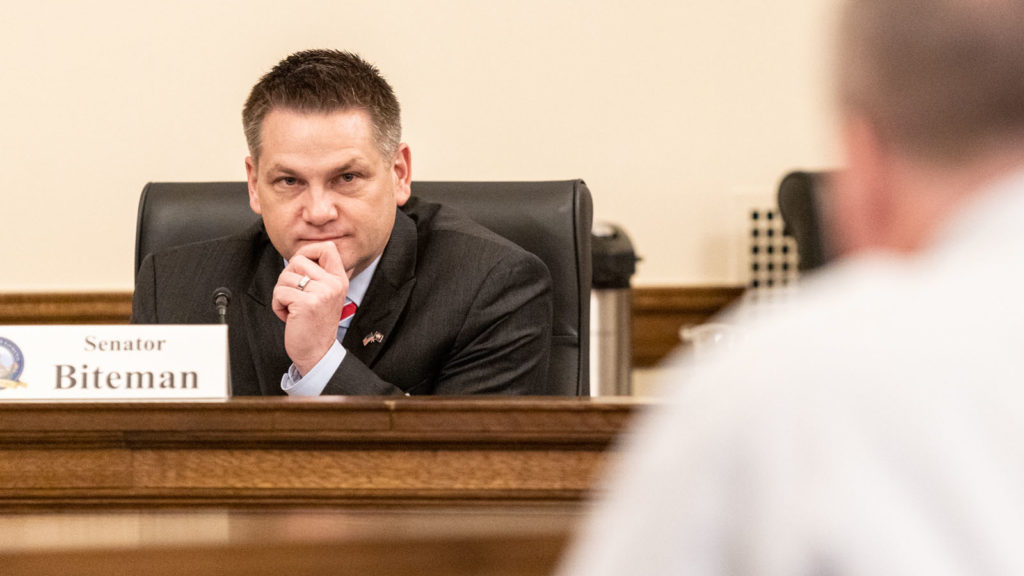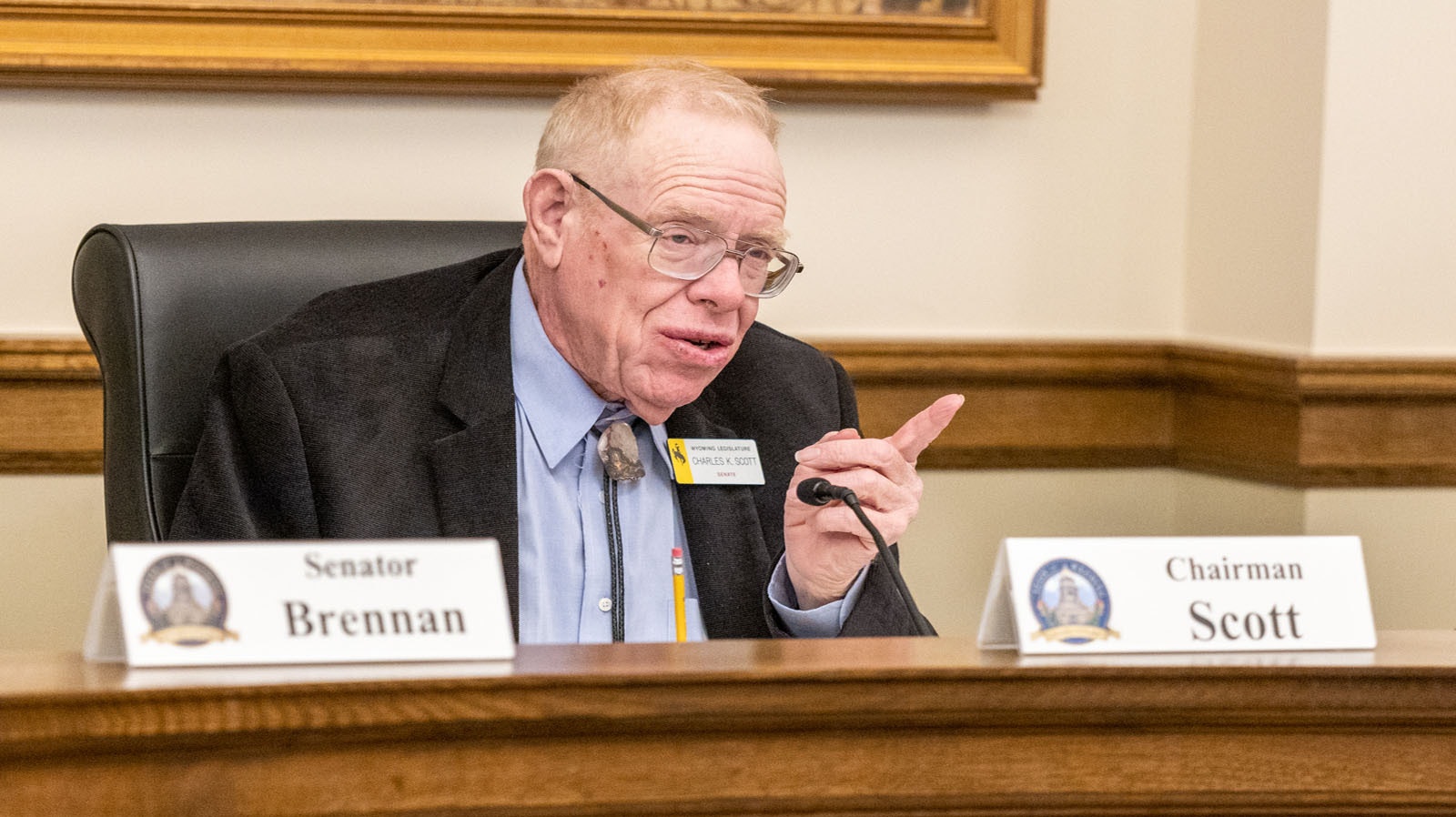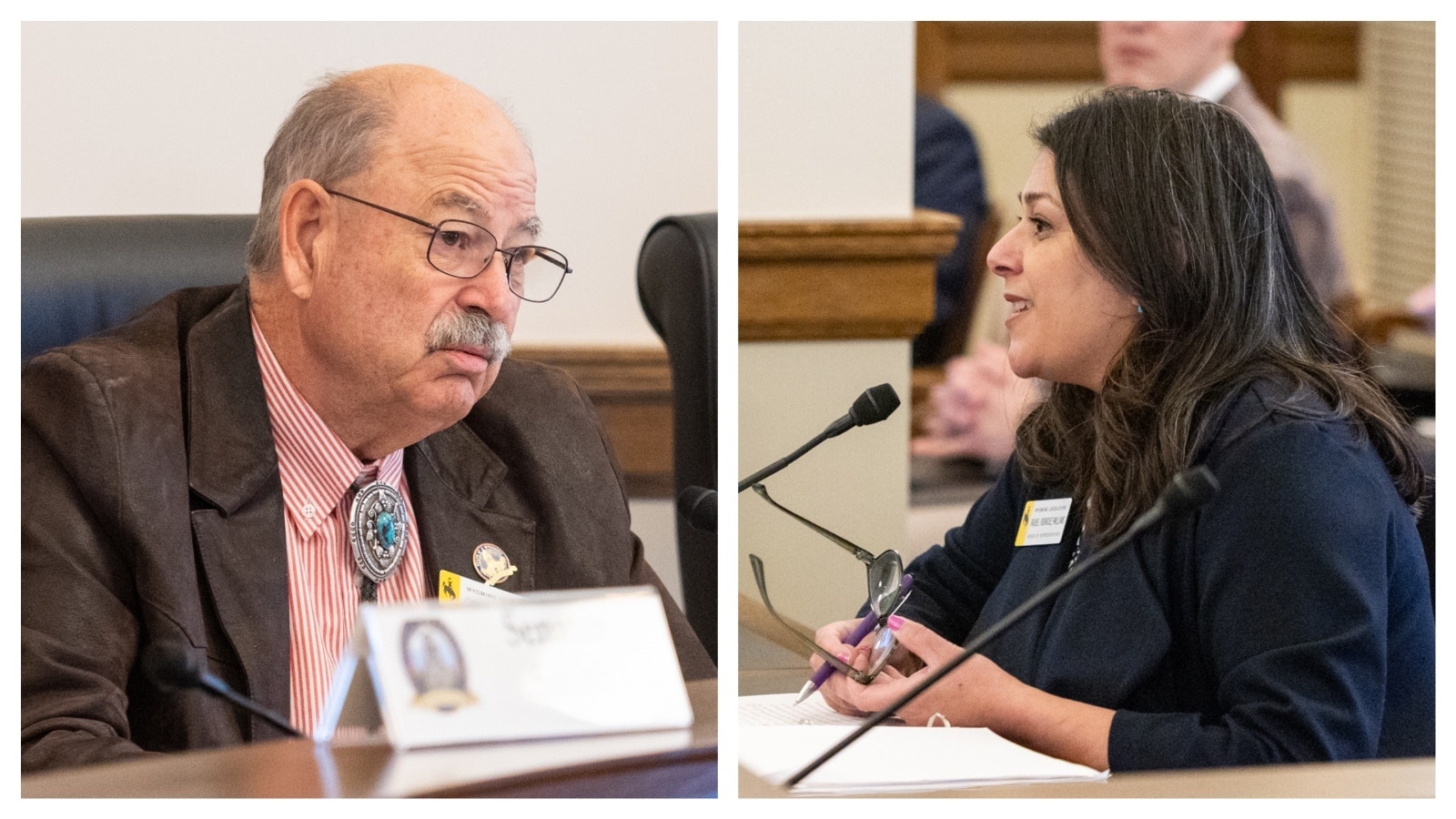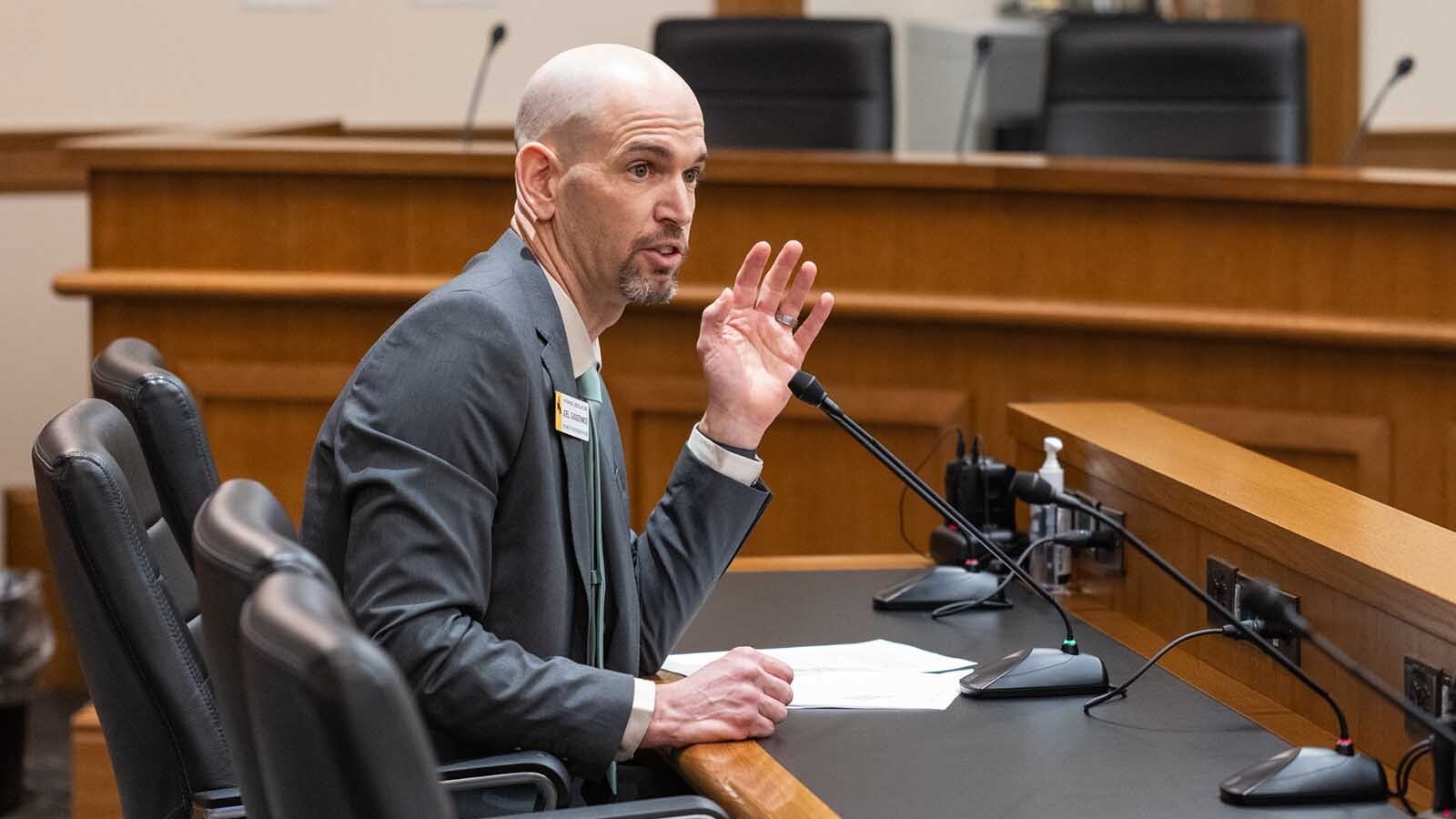A law change that would remove legal protections from public school staffers who spank or swat students cleared a Wyoming legislative committee Friday on a unanimous vote.
If it passes the Legislature, Senate File 47 would remove legal immunity from teachers, principals and superintendents use “corporal discipline” on students. The bill does not outlaw the practice; rather, it opens those who use it to possible lawsuits or criminal battery charges.
There are 48 school districts in Wyoming, and three of those still allow corporal punishment by board policy, according to Jeff Jones, principal of Tongue River Middle School in Ranchester.
Jones in May 2021 completed a doctoral dissertation on corporal punishment.
When Jones briefed the Joint Education Committee on the bill November, he knew of only one district – in Niobrara County – still allowing the practice in the Cowboy State. But Friday he told the Senate Education Committee there actually are three.
Jones said though they allow corporal punishment by policy, the remaining three districts don’t use it, and one superintendent “was shocked to know it was still in his board policy.”
Wyoming schools have reported no incidents of corporal punishment to the federal Office of Civil Rights since 2012, Jones said.
What If There’s A Fight?
Sen. Bo Biteman, R-Ranchester, asked Jones to address detractors’ concerns that repealing immunity for corporal punishment would open school personnel who have to get physical to break up a student fight to possible criminal charges or being sued.
Biteman voted for the bill and spoke in favor of it throughout the meeting.
Jones said corporal punishment in studies is generally defined as an intentional act aimed at deterring future misbehavior, not physical intervention used to reduce violence. He said he did not think repealing the immunity would cause legal harm for teachers breaking up fights, and added that he didn’t think the repeal needed a qualifier to address such a situation.

‘Nurturing And Compassionate’
Clark Fairbanks with the Wyoming Youth Service Association told the committee he’d like to see the Legislature take SF 47 a step further and expressly outlaw corporal punishment, rather than just remove immunity for it.
“Children who may be subject to corporal punishment often come from hard places, often with special needs, and often have not lacked consequences,” said Fairbanks, citing 30 years of youth services work. “What they lack are the skills – the skills to self-regulate – and I believe it’s the education responsibility to teach those skills in a safe, nurturing and compassionate environment.”
Biteman countered slightly, saying repealing the immunity would remove “the last vestiges of this from the books.”
“These three districts (would be) now open to civil and criminal consequences for their action if they do use corporal discipline, and the parent feels it’s not appropriate, and their kid comes home with bruises and they want to know why,” Biteman continued. “Then they can take legal action.”
‘Waiting For Their Swats’
Committee Chair Sen. Charlie Scott, R-Casper, voted in favor of the bill, adding that it reflects a “tremendous” change in the way society perceives the issue.
“When I was in eighth grade I used to walk to class past the junior high office,” said Scott. “And there was always a lineup of kids waiting for their swats.”
Scott said the support behind the bill has indicated that the practice “sounds like it’s long dead at this point.”





